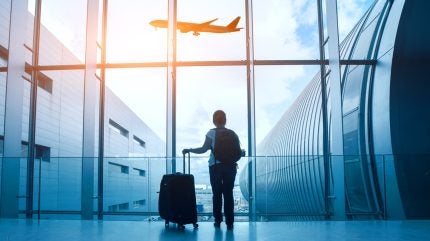
US-based Metropolitan Washington Airports Authority (MWAA) has expanded its technology-development partnership with the community of entrepreneurs 1776 with the launch of the Airport Innovation Challenge.
The Airport Innovation Challenge is a competition designed for start-up companies to develop and deploy new products and services that would help improve the passenger experience at Ronald Reagan Washington National Airport and Washington Dulles International Airport.

Discover B2B Marketing That Performs
Combine business intelligence and editorial excellence to reach engaged professionals across 36 leading media platforms.
The companies participating in the competition will share their ideas in December.
MWAA executive vice-president and chief revenue officer Jerome L Davis said: “Reagan National and Dulles International airports, which are the Washington, DC region’s gateways to the nation and the world, are committed to being leaders in developing the next generation of airport technologies and services.
“Our partnership with 1776, which discovers and develops up-and-coming technology-based companies, is the perfect forum for introducing game-changing innovations to help take our airports and the entire air travel industry into the future.”
The winning teams will have to spend three months, from January-March next year, at MWAA’s Innovation Lab in 1776’s Crystal City campus near Ronald Reagan Washington National Airport in Arlington, Virginia, where they will test their business models and products.

US Tariffs are shifting - will you react or anticipate?
Don’t let policy changes catch you off guard. Stay proactive with real-time data and expert analysis.
By GlobalDataThe competition is built on the partnership between the airports authority and 1776 that was announced in February.
MWAA Marketing and Consumer Strategy vice-president Chryssa Westerlund said: “Our goal is to create a differentiated experience for passengers that addresses their unique preferences.
“Satisfied and loyal customers help us grow revenue, which, in turn, keeps costs lower for airlines and their customers and helps bring new airlines and destinations to our airports.”
Airport Innovation Challenge focuses on activating the business start-up community and identifying latest developments that will help transform the passenger journey, boost airport brand loyalty and shape the future of the airports.
The new developing technologies may include artificial intelligence, biometrics, robotics, or virtual or augmented reality.
The new products and technologies might be tested at the two US airports.



